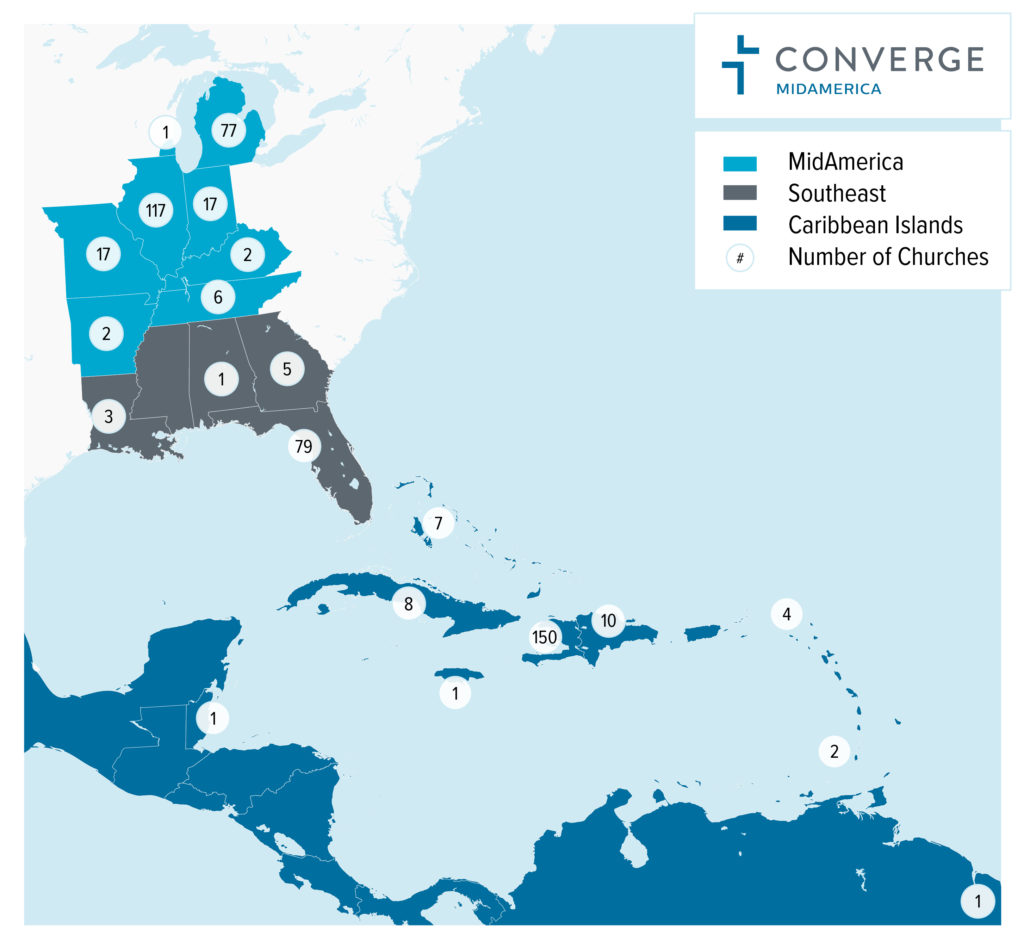I had always believed church to be a safe place. Through years spent attending and pastoring various churches, I developed a deep love and respect for the local church. But I would soon learn that church isn’t really safe at all.
Two major events stole my feeling of security. First, my wife of 20 years succumbed to breast cancer. Second, 10 years later, my 21-year-old son, Taylor, was the victim of a homicide. Both scenarios were very public.
As a pastor, I felt I was living in a fishbowl. Suddenly, the church was no longer a refuge. It became a frightening place that seemed too fearful to manage. Leaders didn’t know what to do. Congregants descended on me. I wanted to hide.
Like many other lead pastors, I have discovered working during this COVID-19 pandemic is difficult. We pastors are facing unprecedented situations and flailing in the dark for solutions, but congregants are hurting, too. Trauma has reared its ugly head, and it’s not going away.
As your church reopens, you will see hurting and damaged people coming through your doors. Not only are they dealing with current hardships brought on by the pandemic, but past trauma has been triggered in many of them.
According to a recent article in Medical News Today, “The COVID-19 pandemic has many potential sources of trauma, such as experiencing the death of a loved one. For some people, this can lead to post-traumatic stress disorder (PTSD). It can also exacerbate existing PTSD symptoms.”
Congregants, like everyone else, are hurting. Here are some suggestions to help you make your church a safe and loving place as you begin to meet again.
Practice the art of presence
As pastors, we feel we have to say the right thing. People are continually looking to us for advice, and even when we aren’t sure what to say, we mumble something that sounds very pastoral. When a person is experiencing trauma, it’s often better not to say anything.
In Romans 12:15, we are commanded to “rejoice with those who rejoice, and weep with those who weep.” In Job 2:11-13, we notice that Job’s friends ministered to him in silence: “And they sat with him on the ground seven days and seven nights, and no one spoke a word to him, for they saw that his suffering was very great.”
The most meaningful way others comforted me during the darkness of my suffering was simply by being present. Some would walk by and just touch my elbow. That gesture said, “I am here if you need me.” Others would pray or offer to care for the kids to give me a break.
Whatever the case, they weren’t demanding anything of the sufferer or looking for quick fixes. They were practicing the art of presence.
When one of my staff members lost a son to suicide, I had nothing to say. So, I just sat with the family for hours. It’s all they needed and wanted. I have repeated that practice over the years, and it has become a joy to simply be. Your presence will speak volumes to one who is suffering.
Talk about your suffering
A powerful way to help your congregants deal with their suffering is to talk about your own. Pastors do suffer, and it is nothing to be ashamed of.
Charles Spurgeon, the “Prince of Preachers,” said, “I would go to the deeps a hundred times to cheer a downcast spirit. It is good for me to have been afflicted, that I might know how to speak a word in season to one that is weary.”
A powerful way to help your congregants deal with their suffering is to talk about your own.
He understood that a congregant could find healing when he knows that his pastor understands his pain. When I share what it was like to raise three young children after losing a wife, receiving a call in the middle of the night from homicide detectives, and wading through press conferences and television interviews, I have the congregants’ attention.
It’s not to glorify me. It’s to find common ground with them.
I can’t count the number of funerals I’ve officiated where I’ve simply said to the family, “I have been where you are.” Instantly, they see me as a real and vulnerable person. I am no longer the holy man or a hired gun in their eyes. I have their ear. I can minister to them in a deeper way.
Trauma is coming through your door. Don’t be afraid to talk about your struggles and how the pandemic has affected you. Give your flock a pathway toward healing.
Don’t assume anything
When you look out and see smiling faces in your worship center, it’s easy to assume they’re all doing well. But they’re not.
A recent Washington Post article chronicled the massive damage that’s been done by COVID-19. According to the story, “Three months into the coronavirus pandemic, the country is on the verge of another health crisis, with daily doses of death, isolation and fear generating widespread psychological trauma. Federal agencies and experts warn that a historic wave of mental-health problems is approaching: depression, substance abuse, post-traumatic stress disorder and suicide.”
Allow your shepherd’s heart to take you deep into the suffering of another. This is what you are called to do. It’s the most gratifying part of ministry.
Churchgoers are experts at pretending. They can make anyone believe anything for a couple of hours on Sunday morning.
But it’s a mistake to think there’s not deep-set pain behind the masks, literally and figuratively. It is up to the shepherd to help make the church a safe environment for people to express true hurt and pain.
Jesus could see the coming pain Jerusalem would experience because of her rejection of him. This caused him great distress.
His shepherd’s heart shows through in Luke 19:41-42: “And when he drew near and saw the city, he wept over it, saying, ‘Would that you, even you, had known on this day the things that make for peace! But now they are hidden from your eyes.’”
Allow your shepherd’s heart to take you deep into the suffering of another. This is what you are called to do. It’s the most gratifying part of ministry.
Trauma is real, and it is prominent in people’s lives. Don’t let this opportunity go by because you assume everyone is OK.
Train your flock
COVID-19 has offered a wonderful chance to train others to care for the flock. This training really isn’t optional.
Paul commanded believers to pass along their knowledge to others. In 2 Timothy 2:2, the apostle wrote, “…and what you have heard from me in the presence of many witnesses entrust to faithful men, who will be able to teach others also.”
New and emerging resources are available to help you do this. I am honored to host a podcast entitled LifeSupport, which is available on the Faith Radio network of stations. The podcast’s goal is to help trauma sufferers find more of Christ and to help the Christian community learn how to come alongside them.
Five Stone Media is doing excellent work in this area, equipping ministry leaders to help those who are suffering. There are also many other resources, such as Stephen Ministries and GriefShare.
The point is: Don’t struggle to deal with congregants’ trauma on your own. Allow others the blessing of helping you.
Help your people find Christ in suffering
Times are hard, which means it’s the perfect opportunity to introduce the concept of Christ’s glorious work in suffering. It is within suffering that Jesus shows himself in a way that is magnificent and life-changing.
Many a night I’ve lain in bed and felt unbearable pain. It seemed darkness was winning.
When trauma comes through your door, Christ will be waiting to do miracles and bring a deepening of faith to your church you’ve never imagined.
To combat this sense of descending into darkness, I would listen to faith-filled music and pray. Without fail, Jesus emerged. He did not take the pain away, but I’ve learned to love and trust him in a new and powerful way.
It is through pain that we find unshakable faith and learn to obey God’s commands. The psalmist wrote: “It is good for me that I was afflicted, that I might learn your statutes” (Psalm 119:71).
I am committed to ushering my flock into God’s throne room by means of their suffering. When trauma comes through your door, Christ will be waiting to do miracles and bring a deepening of faith to your church you’ve never imagined.
Take care of yourself
Finally, in the midst of this pandemic, pastors are struggling. I must admit, I am terrible at self-care, but I am working on it.
You will have nothing to give your sheep if you are burned out, angry and frustrated. Pastoral fatigue is real, and we all suffer from it.
You need to watch out for your body and mind. Satan attacks pastors, and he is after you. We all know this.
1 Peter 5:8 offers this reminder: “Be sober-minded; be watchful. Your adversary the devil prowls around like a roaring lion, seeking someone to devour.”
I pray God will help you make your church a safe place where congregants can discover the love of Jesus amid suffering. Please take this seriously. Make no mistake about it: Trauma is about to come through your door.






